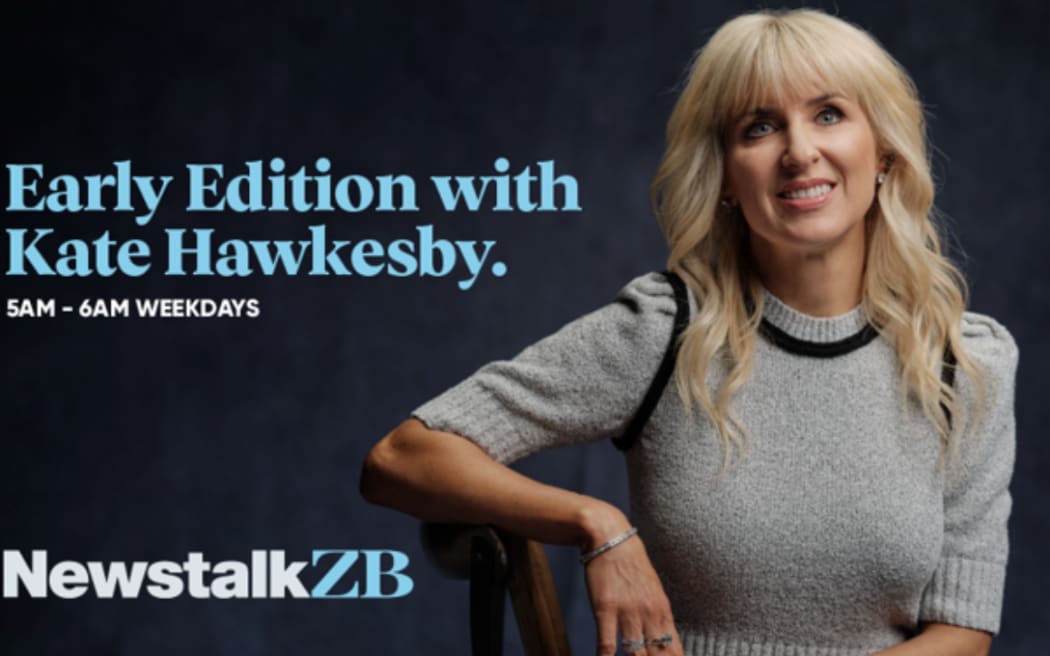In this week's edition of Midweek Mediawatch, Hayden Donnell talks to Bryan Crump about the lessons Kate Hawkesby learned from a bad bout of Covid, and a media spotlight being directed on National leader Christopher Luxon following the US Supreme Court's decision on abortion.

Kate Hawkesby Photo: NZME
Newstalk ZB’s early morning host Kate Hawkesby returned to work on Monday after being off for three weeks with a bad bout of Covid.
She had a harrowing story to tell.
“It’s the pits, I wouldn’t wish it on my worst enemy. I don’t think I’ve ever felt so sick,” she said.
Hawkesby went on to impart a few lessons she’d learned while laid up. Some were practical: Don’t ask someone if they’re feeling better every day. Don’t ask if they need anything because they’ll always say no, apparently.
Others were epiphanies. She'd found out first-hand how annoying it is when people who’ve had a less severe case of Covid extrapolate broad lessons from their personal experience.
“It's brutal when others – not naming names (my husband) get it and say, ‘oh it’s a non event!'. It’s a unique virus, we all suffer it differently and I am here to say to every single person struggling with it or the fallout from it: I hear you, I feel you, I feel your pain,” she said.
Those are worthwhile lessons. It would be useful if the Kate Hawkesby of today could go back and teach them to the Kate Hawkesby of March this year.
Back then, she had a different message on Omicron’s severity. She certainly didn’t feel as strongly about the futility of applying individual experiences to the wider population.
“My brother had Covid last week. Omicron struck him and his whole family, save for one child,” her March 1 monologue began. “He was asymptomatic, bar a dry cough and a tickly throat. All of which he said under normal circumstances he would’ve gone to work with. It lasted 3 days, he said he wouldn’t even rank it in the top 10 of head colds. So, from where he sat, it wasn’t worth the fear and angst afforded it.”
Hawkesby went on to treat her brother’s experience as the basis for advice on how New Zealand should run its Covid response.
“What should the Government be doing here?” she wrote. “Well firstly, accept (like every other country in the world) that Omicron is mild to moderate and has overrun our response plan. In line with that they need to make positive result isolation periods 5 days not 10.
“Remove all onerous scanning in requirements from businesses given there’s no contact tracing now anyway. Disband MIQ immediately, welcome back international visitors and attempt to rebuild our tourism, international education and hospitality sectors.”
Most of those steps have now been taken.
The government, which has confessed to considering media coverage in at least some of its Covid response decisions, has now followed the advice of a plethora of pundits and let it rip.
As it turns out, not everyone has had quite as mild an experience of Covid as Hawkesby’s brother. About 70 people a week are dying of the virus. Thousands more are suffering long-term health problems. Otherwise healthy people are sometimes becoming severely, not mildly, sick.
Hawkesby was far from the only high-profile commentator calling for the country to open up in March. Her husband Mike Hosking and others were regularly delivering similar opinions.
But even then there was an abundance of evidence of the harm a widespread outbreak would cause.
Death tolls from Omicron were rising in countries around the world, with immunocompromised or elderly people bearing the brunt of the outbreaks.
In Hawkesby’s first opinion piece, those people were addressed with some throwaway lines before a missive about how taking extra steps to keep them safe wasn’t worth an “$80 extra debt blowout”.
This week’s opinion piece carries a much different message.
“I thought I was an empathetic person already, but I have empathy in spades now for anyone suffering any kind of sickness, to feel so debilitated and discombobulated and unable to control your own health outcome,” she says. “That is a terrifying and awful feeling. I also learned we’re not as invincible as we think we are.”
It’s possible the people who have borne the brunt of Aotearoa’s Covid outbreak will welcome this recent uptick in empathy from one influential quarter.
But they may question why until now, many commentators have seemed far more focused on the concerns of business associations than their fears they could get sick or die; why their lives have often been talked about as abstractions to weigh against the benefits of increasing foot traffic to shops on Queen St.
While a dose of empathy is always nice, it shouldn’t take literally feeling their pain for commentators to care about it.


